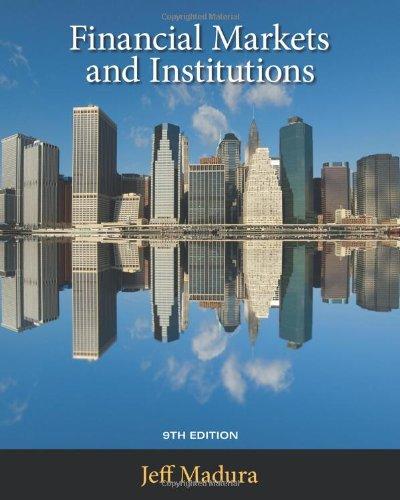Answered step by step
Verified Expert Solution
Question
1 Approved Answer
I am reviewing a financial case study for guna fiber, and I want to come with at least FIVE critiquing points. They could range from
I am reviewing a financial case study for guna fiber, and I want to come with at least FIVE critiquing points. They could range from questioning their assumptions, their analysis, their excel calculations, their answers to each question and so forth. the case study is the following: Q What is the current situation? Is Guna Fibres, Ltd a financially healthy business? Why did
the companyy run out of cash?
As previously mentioned, financial position of Guna Fibers must be assessed by calculating specific
ratios derived from the financial statements provided in order to fully assess the company's position.
This shortfall is undoubtedly due to a variety of factors:
The company's day inventory and stockholding policy takes up significant real estate space in
the warehouse, tying up working capital for days, as clearly illustrated by the discrepancy
between DPO and DSO, where calculations of DSO Days Sales Outstanding and DPO Days
Payment Outstanding revealed that Guna Fiber needs an average of days to collect cash, while
suppliers need an average of days to be paid. In addition, the DSI Days Sales inventory figure
shows that products remain in stock for an average of days before being converted into sales.
The inadequacy of Guna's ability to meet its debt obligations is clearly reflected in the debttoequity
ratio of which measures the extent of leverage used by the company and reflects the
ability of shareholders' equity to cover all outstanding debts in the event of a slowdown in activity
between and
The debttoequity ratio increased by This ratio indicates the solvency ratio, which shows
the company's ability to repay its debts with its assets, indicating a huge percentage of the
company's assets financed by debt.
Regarding liquidity ratios, Guna Fibers' results show a significant decline in both the immediate
and shortterm liquidity ratios. Specifically, the current ratio fell by between and
while the quick ratio fell by over the same period. This downward trend raises concerns about
the company's liquidity position.
Expensive operating expenses using the hireandfire strategy that causes the company's operating
costs to exceed its revenues, labor costs and direct manufacturing costs, while the EOR is
relatively low compared to the amount of COGS, but this may be one of the indirect factors for
this situation.
Lack of working capital: Guna Fibers may not have sufficient liquidity to meet its immediate
financial obligations, also analyzed the cash ratio to see if the company can pay all its shortterm
debts with its cash. Guna Fibers cannot pay its debts in cash because the ratio dropped in
Ultimately, if we look at the profits made by Guna Fibers, we see that the company did not
perform as well in as it did in The net profit margin fell by the gross profit
margin by and the return on sales by over this period.
FINAGroupA
P a g e
Seasonal variations in demand: Fluctuations in demand in the textile sector could lead to irregular
cash flows over time.
Payable of dividends: Paying dividends of million Indian rupees a year is another problem
facing the company, as it places a heavy pressure on its cash reserves and forces it to borrow
more and that each reduction in the dividend payout per quarter considerably improves their notes
payable account.
Q What are the consequences for the company? As part of your assessment, consider the
return on assets of the business.
To evaluate the outcomes Guna Fiber ltds performance, we first need to examine the company's
ROA Net Income Average Total Assets which measures how efficiently a company uses its assets, so
it is necessary to study the company's financial statements, such as the balance sheet and income
statement. These documents provide crucial information about a company's assets, liabilities, income, and
expenditure.
This decline in ROA is expected, as we saw in the previous chart, to the increase in the company's
debttoequity ratio in indicating an increase in debt and interest charges, as well as in the company's
day inventories, supplier payments and cash collections, which resulted in the DSO, DPO and DPI
FINAGroupA
P a g e
factors. Given that return on equity continues to fall, the company's financial position is not optimal.
ROA's weak performance is reflected in the following points:
Potentially affecting shareholder returns and future investment.
Increased costs and reduced competitiveness in the market
Signs of financial instability, impacting investor confidence, credit ratings and the security of
funding or investment capital.
This leads to business failure, which may result in bankruptcy or insolvency.
Putting pressure on management to implement strategies to improve profitability and efficiency.
Step by Step Solution
There are 3 Steps involved in it
Step: 1

Get Instant Access to Expert-Tailored Solutions
See step-by-step solutions with expert insights and AI powered tools for academic success
Step: 2

Step: 3

Ace Your Homework with AI
Get the answers you need in no time with our AI-driven, step-by-step assistance
Get Started


